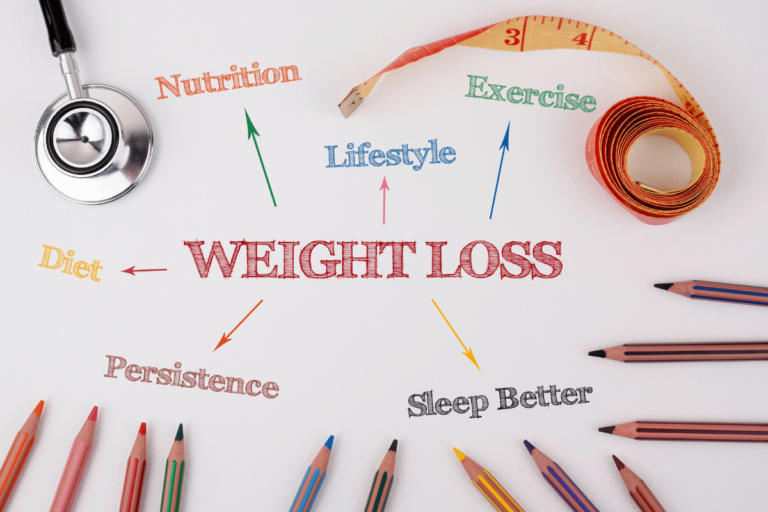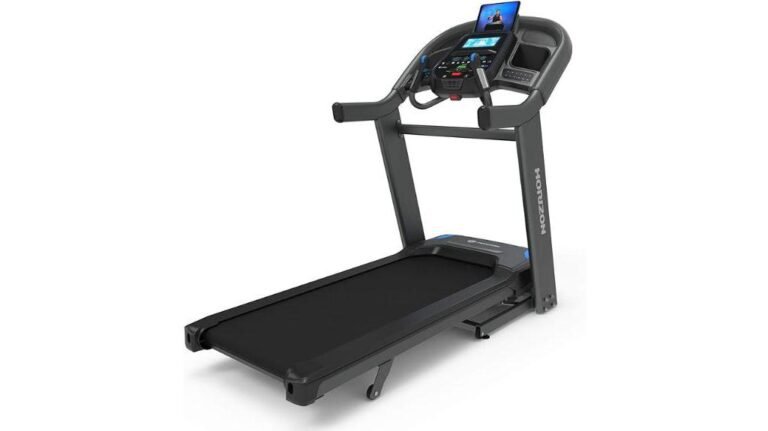Essential Vitamins and Minerals for Fitness Enthusiasts
When it comes to your fitness journey, think of essential vitamins and minerals as the building blocks of your progress. Each nutrient plays a crucial role in optimizing your performance and recovery.
From Vitamin D's influence on muscle function to the energy-boosting properties of iron, these elements are key to your success. But what about the lesser-known minerals like magnesium and zinc?
Stay tuned to uncover their impact on your fitness goals and overall well-being.
Key Takeaways
- Vitamin D supports muscle function and bone health, aiding recovery and reducing injury risk.
- Iron is essential for oxygen transport, preventing fatigue and supporting performance.
- Magnesium, zinc, and calcium are crucial for muscle function, immunity, and overall health.
- Maintain bone density with calcium, vitamin D, and magnesium to prevent osteoporosis and support strength.
Importance of Key Nutrients
To optimize your fitness performance and overall health, understanding the importance of key nutrients is essential. Nutrient absorption plays a crucial role in ensuring your body receives the necessary vitamins and minerals to support various physiological functions.
When it comes to performance optimization, nutrients such as iron, calcium, and vitamin B12 are particularly vital.
Iron is essential for oxygen transport in the body, which is crucial during exercise to prevent fatigue and enhance endurance. Calcium not only supports bone health but also aids in muscle contractions, making it important for strength training and overall physical performance. Vitamin B12 is involved in energy production and red blood cell formation, both of which are key for maintaining stamina and vitality during workouts.
Vitamin D Benefits
Understanding the importance of key nutrients like iron, calcium, and vitamin B12 sets the foundation for exploring the benefits of Vitamin D in enhancing your fitness performance and overall health. Vitamin D plays a crucial role in muscle function, immune response, and bone health, making it essential for fitness enthusiasts.
One of the primary sources of Vitamin D is sun exposure. Spending time outdoors can help your body naturally produce Vitamin D when sunlight interacts with your skin. However, dietary sources such as fortified foods like milk, fatty fish, and egg yolks can also contribute to your Vitamin D intake, especially if you have limited sun exposure.
Ensuring adequate levels of Vitamin D can improve muscle strength, reduce the risk of injuries, and enhance recovery after intense workouts. Additionally, Vitamin D is known to support immune function, which is vital for overall health and sustained fitness progress. By incorporating sun exposure and Vitamin D-rich foods into your routine, you can optimize your Vitamin D levels and reap the benefits for your fitness journey.
Iron for Energy
Iron is crucial for your energy levels as it plays a key role in oxygen transport, which is essential for endurance during your workouts.
By ensuring an adequate iron intake, you can prevent fatigue and reduce the risk of anemia, ultimately supporting your overall fitness performance.
Including iron-rich foods in your diet can help you maintain optimal energy levels and improve your workout efficiency.
Iron Boosts Endurance
Boost your endurance and energy levels by incorporating adequate amounts of iron into your diet. Iron plays a crucial role in oxygen transportation and utilization, which is essential for improving performance and enhancing recovery.
Here are three ways iron boosts endurance:
- Increased Oxygen Delivery: Iron is a key component of hemoglobin, the protein in red blood cells that carries oxygen to your muscles. Sufficient iron levels help optimize oxygen delivery during exercise, leading to improved endurance.
- Enhanced Energy Production: Iron is involved in the electron transport chain, a process that generates energy in the form of adenosine triphosphate (ATP). Adequate iron levels support efficient energy production, crucial for sustaining endurance activities.
- Reduced Fatigue: Iron deficiency can lead to fatigue and decreased exercise capacity. By ensuring you meet your iron needs, you can combat fatigue and maintain optimal endurance levels.
Prevents Fatigue and Anemia
To maintain optimal energy levels and prevent fatigue, ensuring an adequate intake of iron in your diet is crucial. Iron plays a vital role in the production of hemoglobin, a protein in red blood cells that carries oxygen from your lungs to the rest of your body. Without enough iron, your body can't produce sufficient hemoglobin, leading to a condition called anemia.
Symptoms of anemia include fatigue, weakness, and decreased exercise performance. By including iron-rich foods like lean meats, spinach, beans, and fortified cereals in your diet, you can support the production of healthy red blood cells, improve oxygen delivery to your muscles, and boost your energy levels for better workouts and overall fitness.
Supports Oxygen Transport
For optimal energy levels and enhanced performance during workouts, ensuring an adequate intake of iron in your diet is essential. Iron plays a crucial role in oxygen transport throughout your body, which is vital for sustaining athletic performance.
Here are three key reasons why iron is crucial for energy and athletic endeavors:
- Enhances Oxygen Delivery: Iron is a component of hemoglobin, the protein in red blood cells that carries oxygen. Sufficient iron levels help optimize oxygen delivery to working muscles, improving endurance and reducing fatigue.
- Supports Energy Production: Iron is involved in the electron transport chain, a process essential for generating energy in the form of adenosine triphosphate (ATP) during exercise.
- Aids Recovery: Iron contributes to muscle repair and overall recovery after intense physical activity, promoting faster healing and adaptation to training.
Magnesium for Muscle Function
Enhance your muscle function by ensuring adequate magnesium intake, a crucial mineral that supports various physiological processes in the body. Magnesium acts as a relaxation aid, crucial for muscle recovery support after intense workouts. This mineral plays a vital role in over 300 enzymatic reactions in the body, including energy production and muscle contractions.
In addition to its role in muscle function, magnesium also contributes to stress reduction and sleep improvement. High-stress levels can deplete magnesium stores in the body, leading to muscle cramps and decreased exercise performance. By maintaining optimal magnesium levels, you can help regulate cortisol, the stress hormone, and promote a sense of calmness. Furthermore, magnesium aids in the production of neurotransmitters that regulate sleep, such as melatonin, helping you achieve better quality rest essential for muscle repair and growth.
To ensure you're meeting your magnesium needs, incorporate magnesium-rich foods like nuts, seeds, leafy greens, and whole grains into your diet. Consider discussing magnesium supplementation with a healthcare provider if needed, especially if you engage in intense physical activity regularly.
Zinc and Immunity
Boosting your immunity with zinc is essential for overall health and wellness. Zinc plays a crucial role in supporting the immune system and metabolism, making it a vital mineral for fitness enthusiasts. Adequate zinc levels are necessary for optimal immune function, as it helps in the development and function of immune cells. Zinc deficiency can compromise the immune response and may impact athletic performance.
Benefits of Zinc for Fitness Enthusiasts:
- Immune System Support: Zinc helps in the development and function of immune cells, aiding the body in fighting off infections.
- Metabolism Regulation: Zinc is involved in various metabolic processes, including protein synthesis and enzyme function, which are essential for energy production.
- Athletic Performance: Maintaining adequate zinc levels is crucial for optimal athletic performance, as it supports overall health, immune function, and energy production.
Incorporating zinc-rich foods like oysters, beef, seeds, and nuts into your diet can help ensure you meet your daily requirements for this essential mineral.
Calcium for Bone Health
Calcium plays a crucial role in supporting bone density, which is essential for overall bone health. By ensuring an adequate intake of calcium, you can help reduce the risk of conditions like osteoporosis later in life.
Additionally, calcium is vital for facilitating proper muscle function, making it an important mineral for fitness enthusiasts to include in their diet.
Bone Density Support
Supporting your bone density is essential for maintaining overall health and strength. Ensuring an adequate intake of calcium is crucial for bone health.
Along with calcium-rich foods or supplements, here are three additional strategies to support your bone density:
- Regular Strength Training: Engage in weight-bearing exercises like lifting weights or bodyweight exercises to stimulate bone growth and maintain bone density.
- Incorporate Flexibility Exercises: Activities like yoga or Pilates can improve flexibility, balance, and posture, which are essential for overall bone health.
- Maintain a Balanced Diet: In addition to calcium, ensure you're getting enough vitamin D, magnesium, and other nutrients that support bone strength.
Prevents Osteoporosis Risk
To maintain strong and healthy bones, it's crucial to address the risk of osteoporosis by ensuring your calcium intake is sufficient and balanced with other essential nutrients. Nutrition plays a key role in bone strength and injury prevention, making dietary choices vital for achieving your fitness goals.
Adequate calcium intake, along with vitamin D, magnesium, and vitamin K, supports bone health by aiding in bone mineralization and density. Incorporating dairy products, leafy greens, nuts, and fortified foods can help meet your calcium needs.
Regular weight-bearing exercises further enhance bone density and strength. By prioritizing a well-rounded diet and exercise regimen, you can reduce the risk of osteoporosis and support your overall bone health for optimal fitness performance.
Muscle Function Facilitation
Ensuring adequate intake of essential nutrients like calcium can significantly impact muscle function and overall bone health for fitness enthusiasts. Calcium plays a crucial role in muscle function facilitation, aiding in proper protein synthesis and muscle recovery.
Here are three key points to consider:
- Protein Synthesis: Calcium is involved in the process of protein synthesis, which is essential for muscle growth and repair.
- Muscle Recovery: Adequate calcium levels assist in muscle recovery post-exercise, reducing the risk of injuries and enhancing performance.
- Bone Health: Calcium not only supports muscle function but also contributes to strong bones, reducing the risk of fractures and osteoporosis in the long run.
Make sure to include calcium-rich foods in your diet to support your muscle function and overall fitness goals.
Conclusion
In conclusion, ensuring you get the right balance of essential vitamins and minerals is crucial for your fitness journey.
Just like a well-oiled machine needs the right fuel to function optimally, your body needs key nutrients to perform at its best.
So, remember to fuel up with Vitamin D, iron, magnesium, zinc, and calcium to support your energy levels, muscle function, immunity, and bone health.
Keep your body running smoothly and enjoy the benefits of a well-nourished system.







